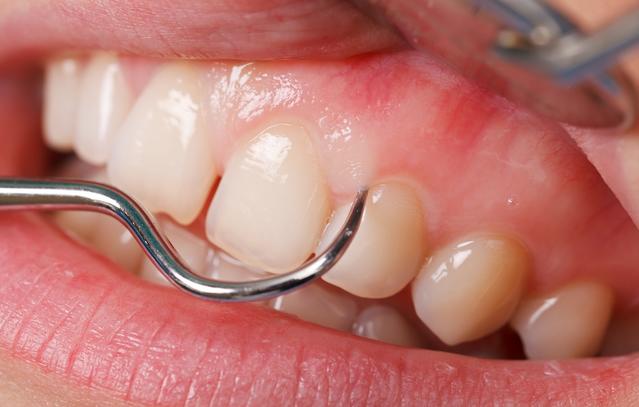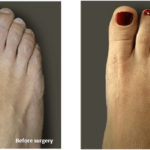Maintaining good oral hygiene is essential to preventing dental issues like cavities, gum disease, and bad breath. One of the key contributors to these problems is the buildup of tartar. But how long does it take for tartar to form, and what can you do to prevent it?
This article will explore the formation process of tartar, what factors accelerate its buildup, and how you can maintain a healthy smile by minimizing tartar accumulation.
What is Tartar?
Tartar, also known as dental calculus, is a hardened deposit that forms on your teeth and gums. It occurs when plaque, a sticky film of bacteria that forms on your teeth, mineralizes over time. If plaque is not removed through brushing and flossing, it hardens into tartar, which can only be removed by a dentist or dental hygienist.
The Difference Between Plaque and Tartar
Plaque is a soft, colorless film that forms on the surface of your teeth daily. It contains bacteria that feed on the sugars in the foods you eat, producing acids that can erode tooth enamel and lead to cavities. Plaque can be removed through regular brushing, flossing, and mouth rinsing.
Tartar, on the other hand, is plaque that has hardened due to the minerals in your saliva. Once it forms, tartar is much more difficult to remove and can only be cleaned by a dental professional. Unlike plaque, tartar is more visible and can appear as a yellow or brown deposit along the gumline.
Also read: What Happens If You Don’t Brush Your Teeth with Braces
How Long Does It Take for Tartar to Form?
Tartar doesn’t form overnight. The process usually takes about 24 to 72 hours for plaque to begin hardening into tartar if left undisturbed. However, the exact time frame for tartar formation can vary depending on a few factors:
1. Oral Hygiene Habits
Good oral hygiene can slow down the formation of tartar. Brushing your teeth twice a day with fluoride toothpaste, flossing daily, and using an antiseptic mouthwash can help reduce plaque buildup before it has the chance to harden into tartar.
If you neglect to brush and floss for a few days, plaque will start to mineralize and harden, leading to tartar formation in as little as 48 hours.
2. Diet
What you eat and drink plays a significant role in how quickly tartar forms. Foods high in sugars and starches feed the bacteria in your mouth, accelerating plaque growth and tartar formation. Sugary beverages, such as soda and juice, can also contribute to this process.
In contrast, a diet rich in fiber, water, and calcium can help protect your teeth and slow down plaque accumulation.
3. Saliva Composition
The minerals in your saliva, such as calcium and phosphate, contribute to the hardening of plaque into tartar. Some people have a higher mineral content in their saliva, which can lead to faster tartar formation.
4. Tobacco Use
Smokers and tobacco users are at a higher risk of developing tartar more quickly. Tobacco reduces saliva production, which plays a vital role in washing away food particles and plaque from your teeth.
5. Genetics
Some individuals are more prone to tartar buildup due to their genetic predisposition. If your family has a history of gum disease or rapid tartar formation, you may need to be extra diligent about your oral hygiene routine.
The Risks of Tartar Buildup
Tartar buildup can lead to several oral health problems if not addressed in time. Some of the common issues associated with tartar include:
1. Gum Disease
Tartar forms along the gumline, where it can cause irritation and inflammation. Over time, this can lead to gingivitis (the earliest stage of gum disease) and, if untreated, progress to periodontitis, a more severe form of gum disease that can cause tooth loss.
2. Cavities
Plaque and tartar harbor bacteria that produce acids, which can erode your tooth enamel and cause cavities. Once tartar forms, it creates a rough surface on your teeth, making it easier for plaque to cling to and cause further damage.
3. Bad Breath
Tartar harbors bacteria that can contribute to persistent bad breath, also known as halitosis. The longer tartar remains on your teeth, the worse your breath can become, even with regular brushing.
4. Tooth Sensitivity
As tartar builds up along the gumline, it can cause gums to recede, exposing the sensitive roots of your teeth. This can result in increased sensitivity to hot, cold, and sugary foods and drinks.
How to Prevent Tartar Buildup
While you can’t remove tartar once it forms without professional help, there are several steps you can take to prevent it from developing in the first place:
1. Brush and Floss Regularly
Brushing your teeth twice a day with fluoride toothpaste and flossing once a day are the most effective ways to prevent plaque from hardening into tartar. Be sure to brush for at least two minutes each time, paying extra attention to the gumline and back molars.
2. Use an Antiseptic Mouthwash
Mouthwash with antibacterial properties can help kill the bacteria that cause plaque. Rinsing your mouth daily can reduce the chances of tartar formation.
3. Eat a Balanced Diet
A diet rich in fruits, vegetables, and whole grains can promote healthy teeth and gums. Avoid sugary and starchy foods that feed plaque-causing bacteria.
4. Stay Hydrated
Drinking plenty of water throughout the day helps wash away food particles and bacteria from your teeth, reducing the chances of plaque buildup.
5. Visit the Dentist Regularly
Regular dental checkups and professional cleanings are essential to removing any plaque or tartar that may have accumulated despite your best efforts. Your dentist can clean areas that are hard to reach with brushing and flossing, preventing long-term oral health issues.
Also read: Safe Ways to Manage Tooth Pain at Home
How Long Does It Take for Tartar to Be Removed?
Removing tartar requires professional cleaning, known as scaling. The length of time for a tartar removal session depends on the severity of the buildup. A routine cleaning might take about 30 to 60 minutes, while more advanced tartar buildup may require a longer session or multiple visits.
Conclusion
Tartar formation is a common dental issue, but with proper oral hygiene, you can delay its buildup and keep your teeth and gums healthy. Tartar typically begins to form within 24 to 72 hours if plaque is not removed. By maintaining a consistent routine of brushing, flossing, and visiting your dentist, you can prevent the harmful effects of tartar and maintain a bright, healthy smile.
Disclaimer: The content on Wellness Derive is for informational purposes only and not a substitute for professional medical advice, diagnosis, or treatment. Always consult a healthcare provider for medical concerns.



